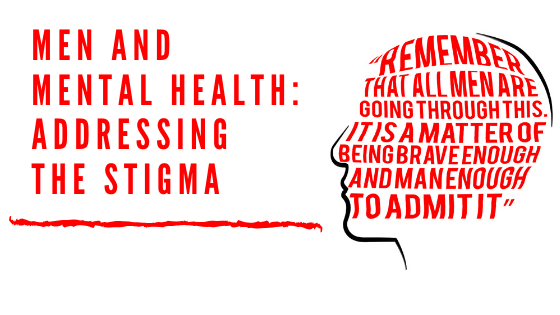Men and Mental Health: Addressing the Stigma
February 3, 2020
Men and mental health are two words that people normally would not put together–and if they are, they usually carry a stigma. Considering college can put a strain on mental health, it is important to address the stigma that men are inadequate if they suffer with their mental health.
“At any one time, it is believed that one in five women and one in eight men are diagnosed with a common mental illness, such as anxiety, depression, panic disorder or obsessive compulsive disorder” according to the Counseling Directory.
The Counseling Directory also reported that “talk therapy has been shown to help with many of the key mental health issues experienced by men, including stress, anxiety, addiction and depression.”
Men tend to suppress their feelings to the point where they are not even able to understand that their feelings are their feelings, said Jared Yates Sexton, associate professor of writing at Georgia Southern and author of the book “The Man They Wanted Me to Be.”
“Men sort of mask everything under the space of control,” said Sexton.
Sexton explained that when men, or anyone for that matter, bottle up their emotions, it is hard to understand what is going on inside of their heads.
“If you’re not going to complain, then there is no way to understand what is going on internally,” said Sexton.
In other words, talking out your feelings can help you understand exactly what you are feeling.
Lauren Patterson, licensed psychologist at Georgia Southern’s counseling center, explained that bottling up emotions is dangerous because when men cannot recognize distinct feelings, the only emotion that is prevalent is anger. This can lead to physical abuse, emotional abuse and even substance abuse.
“Physical injuries are akin to mental health injuries,” said Sexton.
Benjamin Drevlow said that you have to “remember that all men are going through this. It is a matter of being brave enough and man enough to admit it.”
 Graphic by Rebecca Hooper, Quote by Benjamin Drevlow
Graphic by Rebecca Hooper, Quote by Benjamin DrevlowOnce men start communicating their feelings, regardless of their fear of being seen as inadequate or their fear of being judged, the stigma surrounding men struggling with mental health may begin to disappear.
Drevlow said that we are a couple of generations away from this, however, because the people who socialize the men of current generations tend to enforce the idea of masculinity, which leads to toxic masculinity overall.
Toxic masculinity is what happens when men try to reach this unattainable construct called masculinity, and when they cannot, they try to overcompensate until their masculinity becomes toxic.
In his book, “The Man They Wanted Me to Be,” Sexton explains what toxic masculinity is:
This, I’ve come to learn, is how toxic masculinity works. Most every man suffers for his inability to live up to the rigors of masculinity as a child, and most every man feels like an outsider…The performance continues until there’s no performance anymore. There’s just a man who knows no other way.
Jared Yates Sexton, “The Man They Wanted Me to Be”
Patterson said that what leads men who are suffering with mental health issues to suicide or abuse is the idea that “the only emotion men are allowed to express is anger and the idea that you must pull yourself up by the boot straps and take matters into your own hands.”
“Suicide is the biggest cause of death for men under 35,” according to the Counseling Dictionary.
Men bottling up their emotions is a construct etched into society from years ago when men saw themselves as the hunter-gatherers and workers of the family. With that belief came the idea that men had to be tough in order to take on the “masculine” roles of household, said Patterson.
However, because society has already moved away from this belief––seeing that men can be homemakers and women can be the “hunter-gatherer” of the family without very much backlash––it is important to get rid of the idea that men have to be stoic and unwavering in their emotions.
In fact, Gretchen Livingston reported for Pew Research Center that, As of 2012, the number of stay-at-home fathers had risen up to 2 million, according to Pew Research’s Social & Demographic Trends.
Drevlow said that it is socially acceptable by men for men to be angry. When men are wavering in their feelings and are nervous or worked up over something, they are seen by many men as inferior.
Many men are taught that it is “feminine” to express emotion that is not anger, so it is important to communicate and work to blur the lines of the stereotypical “masculine” and “feminine” constructs.
Once we work to remove the stereotypes, men will realize that their suffering from mental health issues is not a result of personal inadequacy.
Patterson said that a way to break this stigma and help men’s mental health is to vocalize that “it is okay to feel what you feel.”
Full-time Georgia Southern students are permitted 16 free visits per year with a licensed psychologist and are promised anonymity. To schedule an appointment, call 912-478-5541 (Statesboro Campus) or 912-344-2529 (Armstrong Campus).












